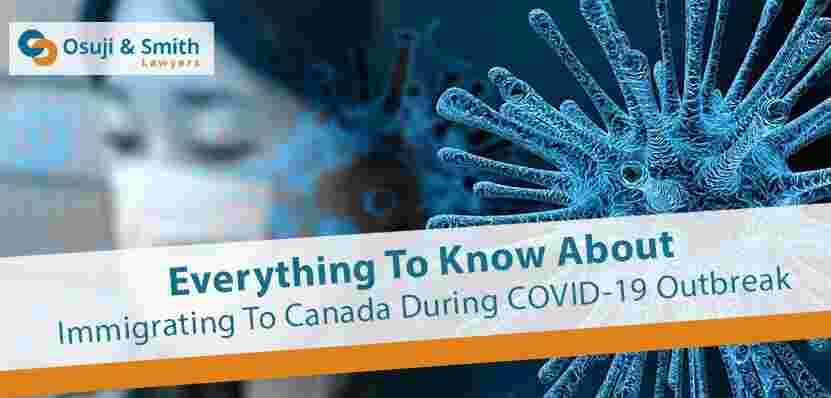COVID-19, commonly known as Coronavirus, is affecting the world like nothing we have ever experienced. We are adapting and adjusting to a very different type of lifestyle. It’s like encountering a world war like crisis. In this case, the enemy is the lethal COVID-19 virus. The scientists and researchers around the world are working hard to develop protection against this virus but the success is yet to come.
Since the virus is spreading human to human, country to country, it’s pretty evident that every country is going to put more restrictions on its immigration policy. Canadian immigration is changing its immigration policy for the coronavirus outbreak too. Now, we think it is time to impart some information about immigrating to Canada during the COVID-19 outbreak.
What’s The Situation Now?
We really don’t know precisely how long the pandemic is going to stay. If you are to come to Canada by airlines, you need to go through some procedures-
- A health check pass from the airlines.
- On March 25th, 2020, an Emergency Order under the Quarantine Act was enacted that makes it mandatory for anyone entering Canada by air, sea or land to quarantine themselves for 14 days regardless of showing any sign of COVID-19.
Coronavirus is spreading around the world, like a chain reaction. It is showing no sign of slowing down. The only way to deal with the pandemic right now is to slow down it and minimize the loss. Self-isolation seems the best way to do that.

Who Can Travel to Canada?
The best way to deal with COVID-19 is to put a strict restriction on traveling. But, no one can fully restrict the travel. There is still business to run, import to do, and medical help to seek. The government is also responsible for its citizen’s safety. So, before adopting new immigration law and policy, these things are getting into considerations.
The people who can come to Canada-
- Canadian citizens or permanent residents
- The person closely related to a Canadian citizen or permanent resident. ( In case of emergency)
- A person registered under Canada’s Indian Act.
- A person protected by the government.
- Members of the military and foreign force workers.
- Air or marine crew members.
There are few more exceptions too. An officer designated under subsection 6(1) of the Immigration and Refugee Protection Act can authorize a person to come to Canada to reunite with immediate family members. International students who have an approval or study permit on or before March 18, 2020 can also travel to Canada. Temporary foreign workers are also not going to fall under travel restrictions.
Some Guidelines to Travel in this COVID-19 Attack
- Avoid crowded places at any cost.
- Don’t go near to any people who show symptoms of COVID-19 like coughing, or difficulty breathing.
- Take local situations into account before traveling.
- Wash your hand for 20 seconds as many times as possible.
- Use tissues if you sneeze or cough.
- Observe carefully to you and your travel partner’s health.
- Avoid handshakes, hugs, and any kind of physical interaction. Maintain a reasonable distance.
- Regardless of the government’s decision, it is your humane duty to isolate yourself for 14 days if you have come from abroad. It is for everybody’s sake.
- If you develop any symptoms of COVID-19 during your 14 days isolation, call a healthcare professional or public health authority. Tell them your symptoms and travel history.
Final Thought
Coronavirus is affecting Immigration law and policy around the world. The countries which don’t take enough precaution to guard its border are suffering heavily for the coronavirus attack. Luckily Canada takes necessary steps to safeguard its border, and the spreading rate is much lower than the neighboring countries like the United States.If you need any help or information on immigration, you can contact our immigration lawyers. We are ready to give you any sort of expert legal advice in Alberta.



